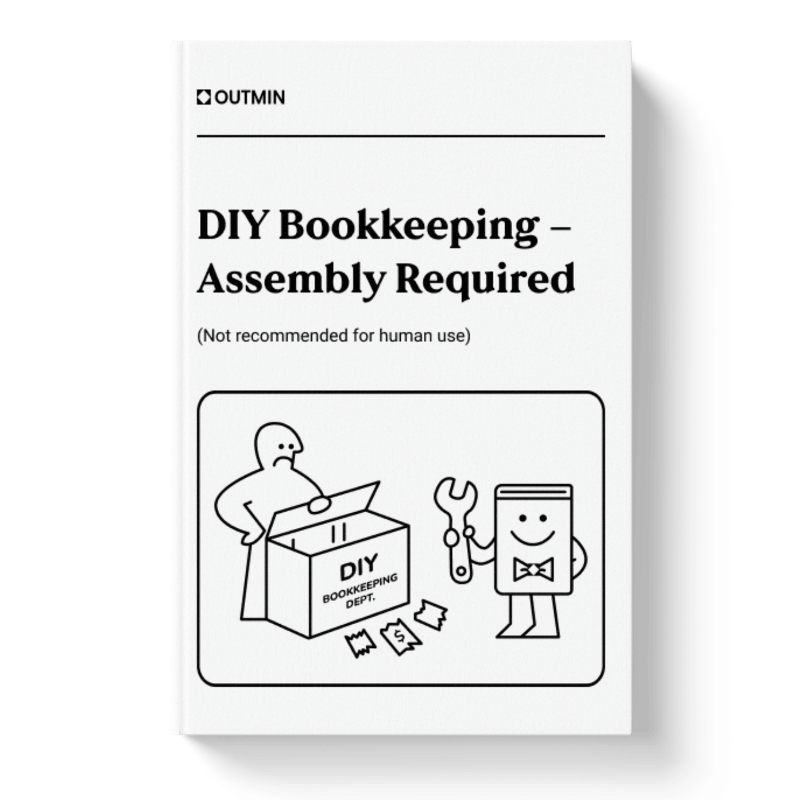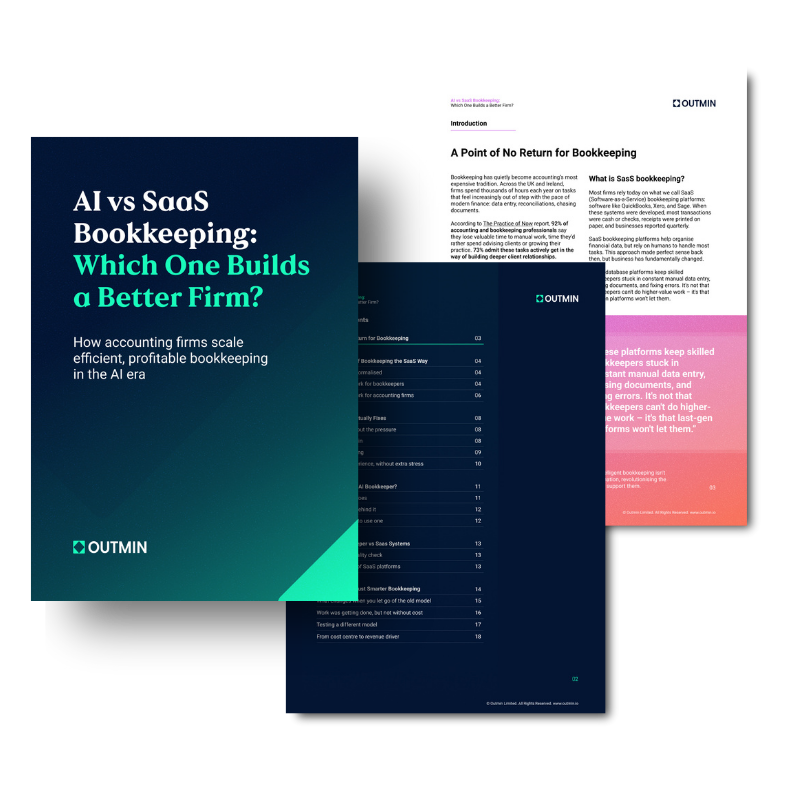August 6, 2024
Delays, Delays: 3 Common Complaints About Accounting Reports

Accounting reports are the lifeblood of any business. They should provide a clear picture of financial health, track performance, and inform crucial decisions. However, all too often, these reports fall short, leaving hospitality business owners with a sense of frustration rather than empowerment. They can be confusing, delayed, and sometimes downright unhelpful.
Let’s dive into the top three complaints hospitality owners have about accounting reports and see what can be done to address them.
Financial Statements: A Quick Breakdown
Financial statements. The very term can send shivers down the spine of even the most seasoned business owner. Often viewed as complex documents filled with cryptic jargon, they can feel like a foreign language reserved for accountants. But here's the thing: financial statements shouldn’t be intimidating. In fact, they should be powerful tools designed to provide a crystal-clear picture of your business's financial health.
These financial reports act as a window into your company's performance. They reveal your profitability, liquidity, solvency, and overall financial well-being. Understanding these core financial statements – the balance sheet, income statement, and cash flow statement – is critical for any business owner, regardless of their financial background.
Let’s do a quick breakdown of these key documents:
1. Balance Sheet
This snapshot depicts your company's financial position at a specific point in time. It categorises everything your business owns (assets) and owes (liabilities), along with the amount of money invested by owners (equity). Essentially, it answers the question: "What do we own, what do we owe, and what's left over?"
2. Income Statement
Often referred to as the profit and loss statement, this report tracks your business activity over a specific period, typically a month, quarter, or year. It details your revenue earned, expenses incurred, and, ultimately, your net profit or loss. It answers: "How much money did we make (or lose)?"
3. Cash Flow Statement
This report focuses on the movement of cash through your business. It categorises cash inflows from operating, investing, and financing activities alongside cash outflows for the same categories. It sheds light on your company's ability to generate cash and meet its short-term obligations. In simpler terms, it answers: "Where did our cash come from, and where did it go?"
Financial reports might not be the most exciting read, but they're like a cheat sheet for running a successful restaurant or any other hospitality business. They give you the inside scoop on your labour costs, letting you see how staffing impacts your budget during busy and slow times. Plus, you can keep your food costs in check by understanding exactly what ingredients are costing you the most.
With this kind of information, you're empowered to make informed decisions about everything from menu pricing to staffing strategies. So, financial reports aren't just numbers on a page – they're the key to keeping your restaurant running smoothly and your costs under control.
But even the best cheat sheet can be frustrating if it's outdated or hard to understand. That's where some common complaints come in. Let's look at some of these frustrations and explore ways to overcome them.
Top 3 Frustrations with Accounting Reports
While financial reports hold the potential to empower strategic decision-making, the reality can be quite different. Unfortunately, traditional accounting practices often create a frustrating blind spot for hospitality businesses. This is part of a larger problem: a reliance on manual processes and outdated software that hinders timely data capture and analysis.
These traditional methods create a disconnect between the raw data and the actionable insights hospitality businesses need to thrive.
These are the top 3 complaints that plague these reports and why they happen:
1. Delays in Receiving Financial Reports
For hospitality business owners, timely financial information is the difference between proactive planning and reactive scrambling. You need this crucial information for decisions like menu pricing and staffing adjustments.
But here's the reality: many hospitality businesses are stuck on a frustrating loop – waiting 4 to 6 weeks, or even longer, for their financial reports.
This isn't some hypothetical scenario. This agonising wait is the norm for countless hospitality owners who rely on traditional accounting methods. Sadly, the very reports designed to empower them are trapped in a backlog, hindering their ability to react effectively to market shifts or capitalise on opportunities.
So, why is this still happening? There are several factors at play here:
- Unreliable Data: Inaccurate or inconsistent data from various sources, like handwritten receipts or point-of-sale systems, injects chaos into the reporting process. This unreliable data requires additional time for verification and correction, delaying the delivery of your financial insights.
- Manual Processes: Many businesses still rely on manual data entry and processing. These manual methods not only consume a huge amount of time but also increase the risk of errors that can skew your financial picture.
- Incompatible Systems: Many businesses operate with a mishmash of software that doesn't play well together. This incompatibility requires manual data reconciliation, a tedious and error-prone process that further clogs up the reporting pipeline.
- Complexity of Operations: Restaurants often deal with a high volume of transactions, from accounts payable to inventory management. This complexity can overwhelm the accounting team, leading to bottlenecks in report preparation.
2. Lack of Actionable Data
Another big gripe from hospitality owners is the lack of actionable data in their financial reports. Financial statements should not only show the current state of your business but also give insights that help you make informed decisions.
Unfortunately, many reports are overly complex and fail to offer the relevant data needed to make informed decisions. Instead of straightforward information that highlights key performance indicators, financial reports often contain technical jargon and excessive details. This complexity makes it difficult for non-financial managers to understand and act on the data.
Not only that but these standardised reports are not tailored to the specific needs of a hospitality business. They often overlook critical metrics such as labour costs, food costs, and operating expenses.
Why it happens:
- Generic Reporting Templates: Many accountants use pre-built report formats that treat all businesses the same. This "one-size-fits-all" approach misses the unique needs of hospitality businesses. For example, these reports might not track crucial metrics you care about, like labour costs or a breakdown of supplier expenses.
- Industry Expertise Gap: Not all accountants specialise in hospitality. They might not understand the specific financial factors that impact your business, such as how payroll costs affect profitability or the importance of menu pricing. This lack of industry knowledge can lead to reports that focus on irrelevant information.
- Jargon Overload: Financial reports should be clear and easy to understand, but often they're filled with technical terms and accounting jargon – it's hard to get any real meaning out of it. These reports should be written in plain English for everyone in your business to comprehend.
- Outdated Data: These reports often focus on historical data, like past sales figures. While understanding the past is important, it's not enough. These reports don't provide real-time insights into what's happening right now. It's like trying to navigate with a very old map – you might get lost before you even start making decisions.
3. Inaccurate, Unreliable Information
Financial reports are supposed to be a reliable roadmap for your restaurant's success. But for many owners, these reports are built on shaky foundations – flawed data.
The consequences of inaccurate data can be severe. You might be making crucial decisions based on faulty information. For example, inflated sales figures could lead to unnecessary spending or over-hiring of staff. Similarly, underreported food costs might mask potential waste or inefficiencies in your kitchen.
Here’s why this issue persists:
- Data Entry Errors: Let's face it, everyone makes mistakes. Manual data entry can lead to typos, accidentally punching in the wrong number, or even misclassifying information. These errors, although seemingly small, can snowball and mess up your financial reports.
- Incomplete Data: Missing data from deliveries, vendors, or even internal systems can leave gaps in your financial reports. And that’s a problem. These gaps make it difficult to get a complete picture of your restaurant's financial health.
- Poor Data Integration: Many hospitality businesses use a variety of software systems, like point-of-sale, inventory management, and payroll. The challenge? Getting all this data to “talk” to each other. If this data integration isn't smooth, inconsistencies and errors can pop up in your reports, making it hard to see the big financial picture.
- Lack of Data Verification: Relying solely on the data you have can be risky. Without double-checking and verifying the information, there's a chance errors can sneak through unnoticed. Often, there’s simply no time for it. This undermines the credibility and usefulness of financial reports for decision-making.
Outmin: Fixing the Root of the Problem
So, how can you transform your financial reports from a source of frustration into a reliable roadmap for success? Essentially, you have to treat the root of the problem: the entire traditional accounting system, which is riddled with inefficiencies. Outmin is your best bet here.
It offers a smarter approach to hospitality accounting, designed to eliminate delays and empower you with timely financial insights.
Here's how Outmin breaks the mould:
- Automated Accounting on Autopilot: Outmin ditches the manual data entry. It seamlessly integrates with your existing systems, capturing real-time data from point-of-sale, payroll, and other sources. This reduces errors and ensures your reports are built on a foundation of accuracy.
- AI-Powered Insights, Human Expertise: Outmin isn't just about automation. It leverages the power of artificial intelligence to analyse your financial data, uncovering trends and patterns that might slip by unnoticed. But it doesn't stop there – you also have access to dedicated financial professionals ready to answer your questions and provide expert guidance.
- Weekly Reports, Weekly Wins: Outmin doesn't keep you waiting. Forget outdated reports that arrive weeks after the fact. Outmin delivers clear, easy-to-understand reports every single week, keeping you in the loop with your financial health. This allows you to make informed decisions quickly and capitalize on opportunities as they arise.
- Frictionless and Fast: Outmin operates on a completely different level than traditional accounting methods. It's an all-in-one solution that eliminates the headaches of disconnected systems. No more wrestling with data silos or struggling to reconcile information. Outmin streamlines the entire process, freeing you up to focus on what matters most – running your business.
Outmin tackles the root cause of reporting delays, not just the symptoms. With timely data and automated processes, you'll have access to the information you need, when you need it.
Ready to ditch the reporting headaches and discover a new era of financial efficiency in your restaurant? Get started with a free tour of Outmin today.









